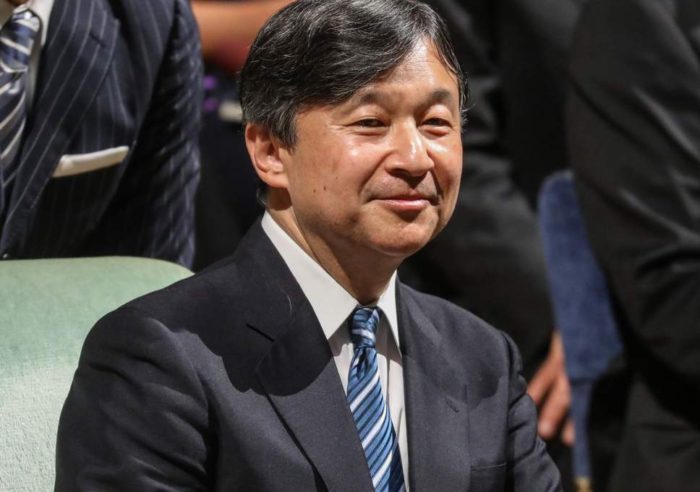Published in Newsweek Japan 7/4/2019
Japan is lucky in its new Emperor. He has an aura of smiling positivity and resilience in the face of setbacks that seems to symbolize Japan’s recovery from the lost decades and the trauma of the triple disaster of March 2011.
Born long after the war and occupation, educated at Oxford University, he is ideally positioned to represent a forward-looking, more confident Japan.
Being a monarch in today’s world is no easy business. You are supposed to symbolize tradition and cultural continuity, yet at the same time in order for the institution to survive it has to reflect social change.
Eighty years ago, Britain’s King Edward VIII had to abdicate because he wanted to marry a divorced woman. Today, heir to the throne Prince Charles has married a divorcee and was previously himself divorced, as are two other of Queen Elizabeth’s children. Nobody bats an eyelid. Divorce is no longer unusual or considered disgraceful in the wider society.
Prince Charles’s second son, Prince Harry, has married a foreigner who is also a woman of mixed race. This also reflects new social realities in Britain. Could something similar happen in Japan? Not yet, because there has so far been little change in the ethnic composition of the Japanese population. But further down the line, in the second half of the century – yes, it is quite possible. Monarchies that survive are those that have adapted. Those that didn’t adapt – like France’s Bourbons, who famously “forgot nothing and learnt nothing” – are no longer around.
Japan’s Imperial institution is the oldest surviving monarchy in the world and the ceremonies that Emperor Naruhito will participate in during his investiture date back to the mists of time, but that does not mean that his role is anachronistic. Monarchy has proved to be a highly durable institution.
Some of the wealthiest and most progressive countries in the world, such as Norway, Sweden, Denmark and Holland, are constitutional monarchies. Spain re-established its monarchy to heal the trauma of its brutal civil war. In countries that have constitutional monarchies, there is little pressure to scrap them. Monarchs routinely have approval ratings far higher than political leaders.
At the same time, we know more about them than ever before. A mini-scandal occurred in Thailand when pictures appeared on Facebook of the then-Crown Prince wearing fake tattoos and a crop top on a shopping expedition with a lady friend.
In the late nineteenth century, five members of the British royal family, including the future King George V, were inked by a Japanese tattoo master in Yokohama, but there was no social media in those days. Private lives stayed private.
Modern monarchs are not expected to be perfect human beings. On the other hand, they should not stray too far from social norms in terms of wealth and lifestyle, as was the case in previous centuries. The Japanese royal family may have its problems, but they are of the kind that many ordinary families have and can sympathize with. Their lifestyle appears to be exceptionally modest compared to non-royal heads of state such as the Presidents of the United States and France, let alone Davos Man CEOs.
The other golden rule is to stay out of politics. The more capable, knowledgeable and socially active a person, the more constricting a purely ceremonial role may appear. But a constitutional monarch must exist on a level above everyday matters.
Any hint of holding opinions on controversial matters could be damaging to the charisma of the institution. Nineteenth century British constitutional scholar Walter Bagehot put it clearly –
“The nation is divided into parties, but the crown is of no party. Its apparent separation from business is that which removes it both from enmities and from desecration, which preserves its mystery, which enables it to combine the affection of conflicting parties…,”
No one knows this better than the head of the British Royal family, Queen Elizabeth, who has reigned for the past sixty six years. In that period Britain has undergone all kinds of political and social convulsions, but the Queen has remained carefully neutral on all controversial subjects. When The Sun tabloid claimed she had “backed Brexit” at a private dinner, the royal household swiftly demanded a retraction.
Heir to the throne Prince Charles has followed a very different path during his long period of apprenticeship. Not only has he made his views known on hot button issues such as environmentalism, urban planning, genetically modified foods and agricultural subsidies, he has also lobbied directly via letters to ministers that the UK government tried but failed to keep secret.
The Prince has stated that he would he would stop these interventions should he become King, but he remains (not solely for this reason) one of the less popular members of the royal family. In a poll last year, he scored an approval rate of 52%, against 92% for the Queen and 83% and 87% for his two sons, Prince William and Prince Harry.
Emperor Naruhito faces new challenges. Japanese society is more diverse and sophisticated than ever before, the media less respectful. The Imperial institution is strongly supported by the Japanese public, yet its role is in flux, as demonstrated by his father’s abdication and the still unresolved question of female succession. It will adapt to the times, as it has before.
In times of dizzying change, monarchy becomes more, not less important. It provides a human link from the past to the future. It reminds us who we are.

